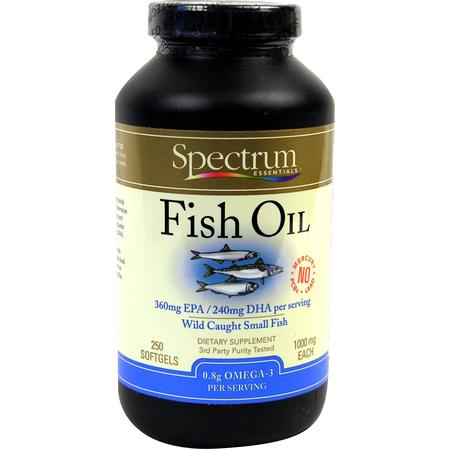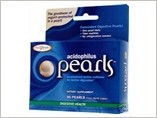Extra vitamins, supplements and nutrients
-
How many of you give your basenjis extra vitamins, supplements or nutrients? Kipawa is a 1 year old now. I am wondering if he needs anything beyond the healthy food he gets (Taste of The Wild Bison kibble, along with a variety of other foods - such as fresh vegetables, cottage cheese, blueberries. Our boy is young but I want him in the best possible health.
What age are your basenjis and what might you be giving them?
-
My two are in the range of 7 years, +/- a bit. Daily supplements include:
- fish oil (1000-1200 capsules)
- Vitamin E (approx. 200 IU every other day)
- apple cider vinegar (just a tad with morning kibble)
- PlaqueOff (read lots about it on this forum!)
and lately: Honest Kitchen Sparkle
We have some seasonal remedies that we use during allergy season, but the ones listed above are given pretty much year-round for overall skin and coat health.
-
Mine all have extra oil and Plaque-off.
As soon as they reach 10 years they have a joint supplement and a supplement (Trimboost) which contains B vitamins, zinc and selenium amongst other things. Apart form that they have plenty of vegetables, fruit and are fed raw meat with biscuit.
-
Only fish oil and a probiotic. If you feed a quality diet vitamins and minerals are not really needed.
Well I thought it couldn't hurt. Maybe I'll finish off this bottle and get some fish oil and a probiotic… any ideas as to where to find it?
-
I use the fish oil for people Spectrum and puncture the capsule, squeeze on the food and mix.
The probiotic I use is Pearls. You can get them on Amazon or any vitamin site like Vitacost.com. They're very small and I just hide one in the food 1x daily.


-
I use the fish oil for people Spectrum and puncture the capsule, squeeze on the food and mix.
The probiotic I use is Pearls. You can get them on Amazon or any vitamin site like Vitacost.com. They're very small and I just hide one in the food 1x daily.
I'll look into it, thanks!
-
If you are feeding a good balanced diet, research after research on animals AND people show we really don't need vitamin and mineral supplements. Really.
That said, adding in fish oil is fine and might be helpful.I was surprised to see apple cider mentioned. Please do research before you add cider, vitamin C or anything that can actually change pH balance. Vitamin C I gave for 20 yrs until a dog turned up with some kidney calcification that UGa felt was potentially related to the Vit C or at least made worse by it. For me, the negative of supplementing Vit C AND anything changing pH level outweighs the positive, especially if kidney problems or iron retention are problems already. Changing pH levels may be related to formation of crystals and stones.
Lots here promote PlaqueOff, and based on it I bought 2 containers. Didn't see any benefits, then read THEIR OWN RESEARCH showing it helped for 5 weeks ONLY, then the plaque amt went up again. If their own research says not helpful after 5 wks, not worth my money. I doubt it will hurt anything.
On your veggies– fyi unless you pulverize them pretty much, dogs like them but get very little actual nutrition. I give the guys a lot for treats. :)
I believe in probiotics. But I used to also use a lot of other supplements. Now, I give supplements only if there is a problem (such as joint support/inflammation for which I swear by Bromelain!). Arwen, because she is on low dose steroids and has mild gum infections off and on and has to have antibiotics every couple of months-- I keep on SamE. When my vet suggested it I rolled my eyes. Research shows it does indeed help. I frankly take large amts of liveraid and believe it is why I am still alive, so don't think I am anti-supplements. I just believe if it really works, research supports it. (liveraid is primarily silymarion).
-
INobarkus, you say you use the fish oil for people Spectrum and puncture the capsule, squeeze on the food and mix. Do they object to the taste? I am intending to do that for my girls because I believe it helps their immune systems and their coats and skin, but don't want to have to shove pills down them any more than the once a month heart medicine. thanks
-
Shaye they would probably like the stinky stuff, lol. I used to buy liquid salmon oil you spray on and they loved it.
It wasn't this one, but you get the idea: http://www.k9power.com/dog-nutrition-supplements/fish-oil-efa-omega3-dogs/wholistic-salmon-oil-4oz.html -
I give Basil a multi vitamin for puppies and small breeds once daily. I'm also wondering if anyone knows what I can give for his dry skin and dandruff?
Once I started Kipawa on Omega 3 and 6 his itchiness disappeared. And he loves the taste of it. I snip open 2 capsules per meal.
-
I usually give the fish oil as the whole capsules in their food. They must like them because they will usually pick them out and eat them first.
I am giving a few different supplements to one dog, but that is mainly because he likely has IBD (supplements to help heal the intestines) but don't really give any to the other dog other than fish oil.
I do give probiotics, but from a pet food/supplement perspective (like every other supplement) it is definitely buyer beware, as it is un-regulated. Not all strains of probiotics are equally shelf stable. L. acidophilus, for instance, is notoriously unstable and won't last long at high temperatures or in moisture unless it has been stabilized in some sort of carrier (Pearls, for example), or refrigerated. So, buy ones that have a measured number of organisms (or CFUs - colony forming units) or some sort of "viability date". If it's just a weight of organisms, that really doesn't tell you if they are viable or not, they could be dead. And probiotics are not effective unless a sufficient amount is given on a consistent basis. You may have to adjust the amount you are giving if you are not seeing whatever results you are expecting. Probiotics is an area with a lot of potential but unfortunately it is mired in a bunch of marketing hype and the science is still developing on how to effectively use them. It's hard to tell what is real and what's not, unfortunately.
